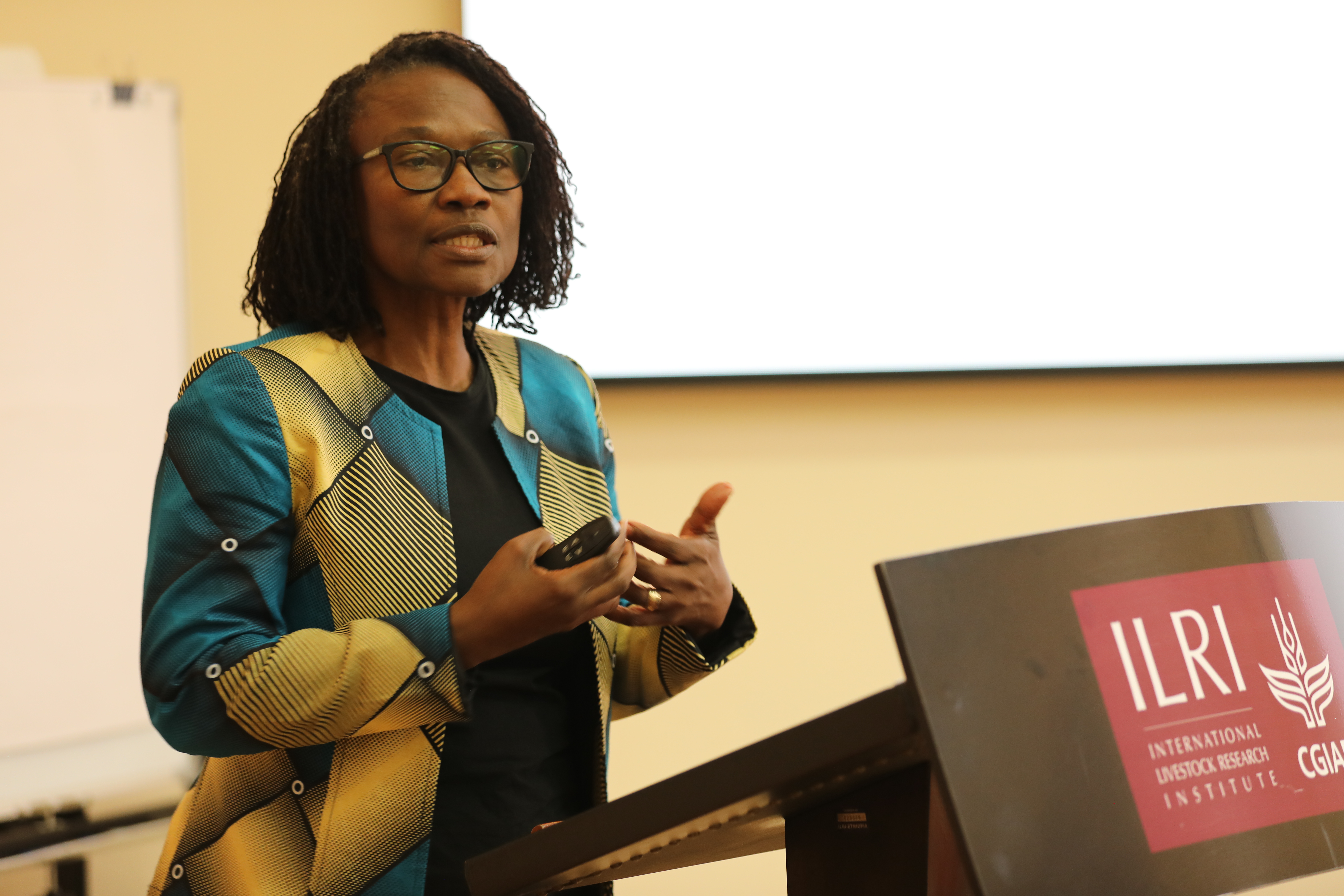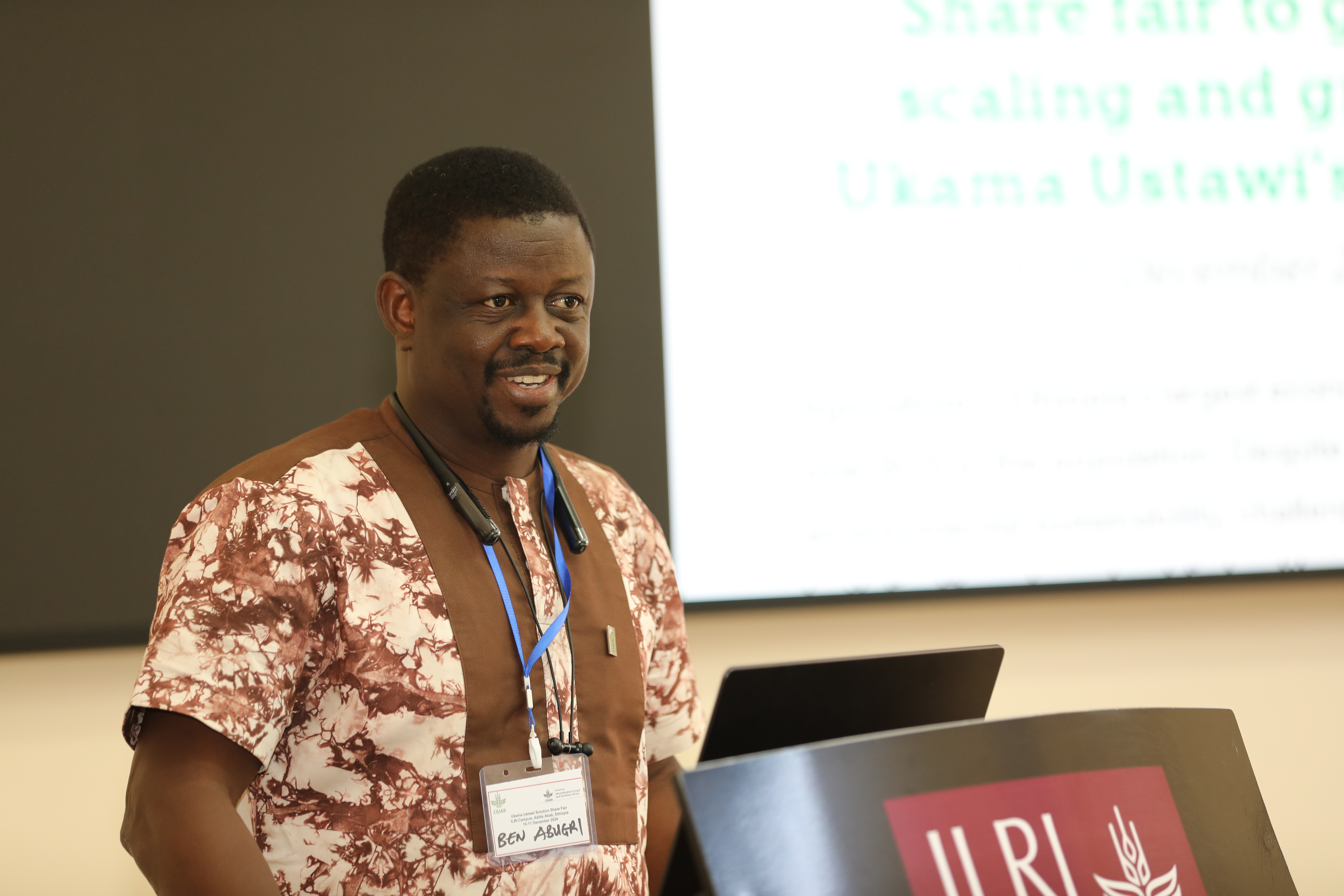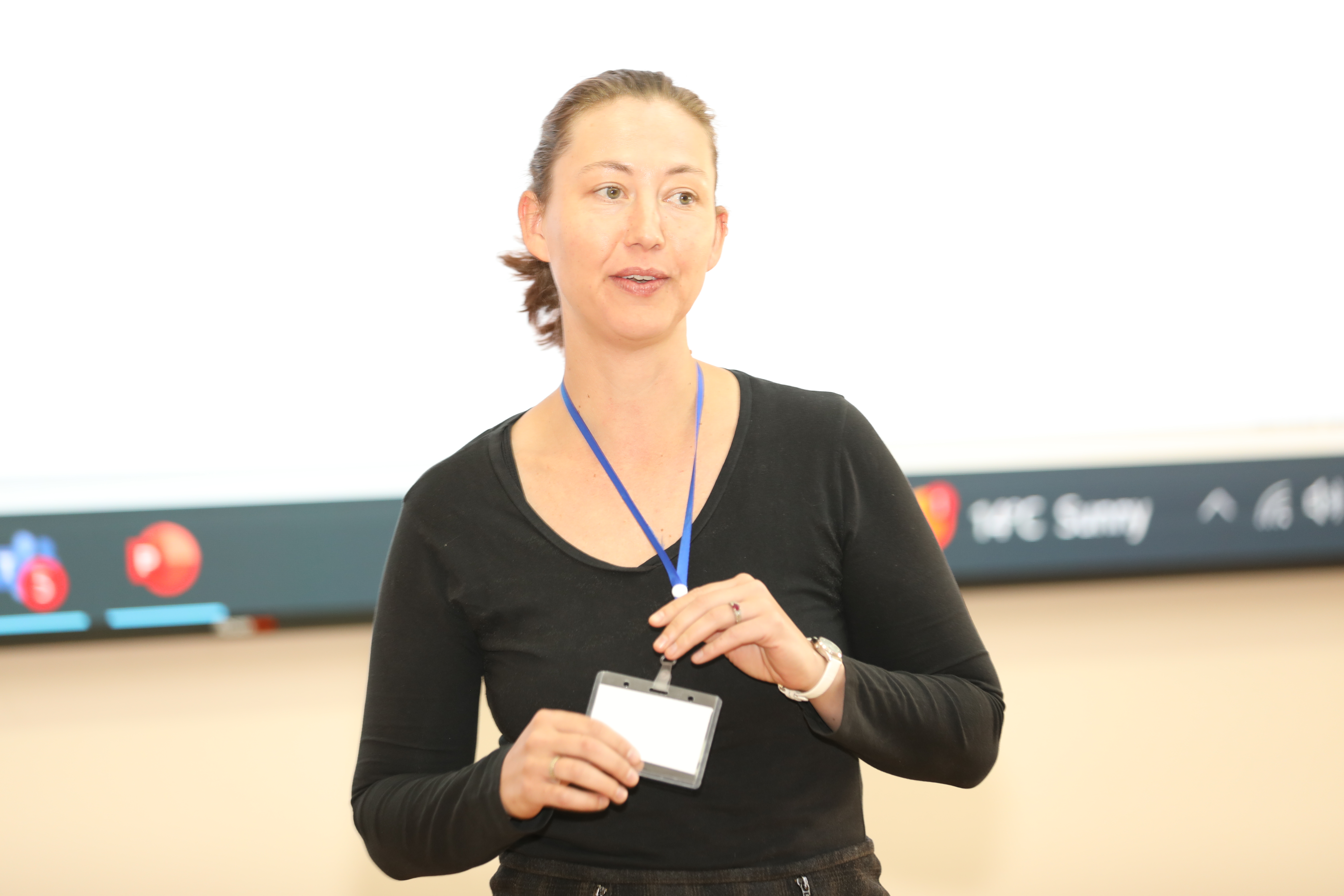
Authors: Bridget Kakuwa-Kasongamulilo [1]& Benjamin Abugri[2]
A pressing need for systematic knowledge exchange between CGIAR’s International Water Management Institute (IWMI) and African Regional Research Institutions has driven the creation of the Ukama Ustawi’s Learning Alliance (UULA), a dynamic partnership designed to bridge research findings and on-the-ground application. This ambitious initiative took center stage at a recent Solutions ShareFair in Addis Ababa at the ILRI Campus from 10-11 December 2024, where diverse stakeholders convened to co-create practical solutions and strengthen Africa’s agrifood systems.
The UULA is anchored in the CGIAR-CAADP-XP4 Knowledge Management Framework and aims to enhance information flow among National Agricultural Research Systems (NARS), extension workers, farmers, and policymakers. By ensuring research is not only accessible but also actionable, the Learning Alliance aspires to transform data-rich but often underutilised academic insights into tangible outcomes that address Africa’s pressing agricultural challenges.
The Solutions Share Fair aimed to highlight agricultural innovations introduced by CGIAR and its partners in Ethiopia over the last three years, assemble a targeted portfolio of solutions suited to Ethiopia’s specific agrifood conditions, and strengthen partnerships among stakeholders as CGIAR’s new research agenda takes shape. These objectives underscore the importance of multi-level engagement—from NARS to extension services and from local policymakers to regional authorities. Through the Learning Alliance, partners like CCARDESA, ASARECA, CORAF, AFAAS, and FARA demonstrated how integrated efforts can spur innovation, increase resilience, and promote sustainable development.

“Ukama Ustawi has been instrumental in connecting the CGIAR with the CAADP-XP4 network, including AFAAS, ASARECA, and other regional partners,” said Dr. Namukolo Covic, a CGIAR leader closely involved with the Learning Alliance. “The Learning Alliance serves as a network for improving Knowledge Management and ensuring that valuable research is practical and usable. This approach ensures that agricultural insights are translated into interventions that directly benefit communities.”
Dr Covic also acknowledged Mr Abugri’s recent honour: “I would like to congratulate Benjamin for winning the International Knowledge Management Award 2024., bestowed upon an international organisation as well as an outstanding personality by a jury constituted under the auspice of the Association Knowledge Management Austria. He truly exemplifies the best in knowledge acquisition and sharing.”
Mr. Benjamin Abugiri, a Knowledge Management Specialist from FARA, officially opened the meeting and spoke on behalf of the CAADP-XP4 Consortium, emphasizing the focus on farmers as key drivers of agricultural transformation. He highlighted the adoption of Climate-Smart Agriculture (CSA) technologies, fostering inclusive collaboration, and using platforms like Dgroups to share knowledge. He also underscored strong ties with CGIAR, events like MITA for knowledge exchange, and alignment with the African Union’s CAADP Malabo agenda and Soil Initiative to ensure food security and sustainability.

Ms. Nora Hanke-Louw, Deputy Head of Office for IWMI South Africa, delivered an insightful presentation on the Ukama Ustawi (UU) initiative. She provided an overview of its impact at the initiative level. She highlighted previous Share Fairs in Southern Africa, showcasing UU's regional reach and commitment to fostering sustainable agricultural practices.

Despite the wealth of agricultural research produced across the continent, much remains confined to academic journals. Recognizing this, the Solutions Share Fair provided a platform for dialogue, enabling stakeholders to discuss and refine innovations that address Ethiopia’s unique agrifood challenges. Participants worked together to curate an evidence-based, context-specific portfolio of solutions, each informed by local knowledge and inclusive of farmers’ voices. The share fair showcased Innovative technologies around Livestock feeds, seed breeding, Climate Smart Friendly and regenerative agricultural equipment and machinery, Innovations around capacity-strengthening efforts to reach women, youth, and the private sector; Gender led innovations on small ruminants such as goats in Ethiopia, a Geo Agro App that tests the Soil PH for Farmers, solar powered innovations that can be purchased in a cooperative or through the bank among others.
In addition to high-level experts, Share Fair’s panel discussions included representatives from government ministries, the private sector, and farmer organizations. Mr. Elias Awol, CEO of Smallholder Irrigation Development at the Ministry of Agriculture, underscored Ethiopia’s dedication to scaling solutions that enable smallholder farmers to adopt new technologies and farming practices. Discussions also touched on issues such as solar panel maintenance for irrigation and gender mainstreaming, as women often provide significant agricultural labor yet face barriers to resource access and decision-making.
As the event concluded, Michael Victor, Head of Communications, Advocacy, and Knowledge Management at ILRI, moderated conversations about the future and how to link current initiatives with the Scaling for Impact Science Program to ensure long-term sustainability and real-world benefits. Mr. Michael Victor, Head of Communications, Advocacy, and Knowledge Management, led a panel discussion exploring key strategies to scale impactful science programs. The panel addressed essential questions, including the elements needed to scale impact effectively, how CGIAR can engage partners to assess national innovation demands, pathways for scaling innovations in the CCARDESA region, and a direct request to CGIAR from the demand side. The discussion highlighted the importance of collaboration, robust mechanisms, and strategic pathways to enhance food systems and drive sustainable solutions.
Prof. Nieyidouba Lanien, Programs Coordinator at CORAF, emphasized their region’s focus on sustainability and innovation. “We work on initiatives that support farmers using an innovation platform approach and adopt methods such as TAAT (Technologies for African Agricultural Transformation) to ensure present and future resilience,” he said.
“The principle of subsidiarity, scaling, and reaching the last mile—the farmer—guides our work,” said Mrs Bridget Kakuwa -Kasongamulilo speaking as a panelist. “We focus on farmers because they are the key. It’s not enough to have cutting-edge technologies; we must ensure that these innovations are effectively adopted, integrated into policies, and aligned with African Union initiatives, including CAADP Malabo, to guarantee food security and sustainability.” She appealed to the CGIAR to use the SROs Network as entry points into member states since the AU and Regional Economic Communities (RECs) mandate them to coordinate Agricultural research at the regional level.
Looking ahead, the Ukama Ustawi’s Learning Alliance will continue to foster dialogue, integrate local and indigenous knowledge, and champion the flow of proven technologies to communities that need them most. By harnessing collaborative energy, knowledge, and resources, the Alliance and its partners are laying the groundwork for a robust, equitable, and climate-resilient African agrifood system.For the farmers whose livelihoods depend on timely, accurate, and context-specific information, and for the research institutions seeking to make an impact beyond the laboratory, the UULA and events like the Solutions Share Fair offer renewed hope that knowledge can—and will—be transformed into action.
[1]Ms Bridget Kakuwa-Kasongamulilo is an Information, Communication, and Knowledge Management Officer at the Center for Coordination for Agriculture in Southern Africa (CCARDESA)
[2] Mr Benjamin Abugri is the Lead Specialist for the Knowledge Management, Digitalization, and Learning Cluster at the Forum for Agricultural Research in Africa (FARA)





